Farewell to the United States; welcome to new world order!
By Alireza Hojjati
The tripartite meeting of the heads of the three guarantor states of the Astana peace process, namely Iran, Russia and Turkey, in Tehran is strongly indicative of the political weight of regional and trans-regional actors in connection with the new security architecture of West Asia, as it took place only a few days after US President Joe Biden’s first visit to the region.
Israeli newspaper Haaretz even wrote in an analysis published on July 14 that “Iran's Supreme Leader Will Determine if Biden's Mideast Trip Succeeds.”
Although Biden told leaders of six countries of the Persian Gulf Cooperation Council (GCC) – Saudi Arabia, Qatar, Bahrain, Kuwait, Oman and the United Arab Emirates – plus Jordan, Egypt, and Iraq at a summit in Saudi Arabia’s Red Sea city of Jeddah on Saturday that the United States “will not walk away” from the Middle East and leave a vacuum to be filled by Russia, China or Iran, there is almost no one in the region to accept such rhetoric as true.
The Arab states of the Persian Gulf region and West Asia actors are closely monitoring unfolding developments in Afghanistan and Ukraine, in addition to Americans’ behavior towards them.
This explains why regional actors have set realism high on their agenda, and Arab states don't really want to put all their eggs in the basket of weakened Washington, and are instead following the policy of détente and cooperation with Iran at the same time as maintaining good relations with Russia and China.
It is obvious that Tehran and its partners have attained significant achievements against Washington out of the seventh summit of the Astana peace talks on Syria, which hosted Vladimir Putin of Russia and Recep Tayyip Erdogan of Turkey.
Syria is a clear example of victory of this alliance over the United States and its Western allies; and the Russo-Iranian-Syrian initiative now determines the path that the Damascus government should tread.
The Syrian conflict is among the most successful models of cooperation between Iran and Russia in terms of foreign policy. The grave crisis in Syria created a perception among Russian officials that Moscow should attach great significance to Tehran's standpoints as regards its calculations in the Middle East.
The breakout of the Syrian crisis in March 2011 initially made it difficult for Tehran to make crucial decisions, but the Islamic Republic prepared after a short while to boost its strategic value in the region.
Russia, for its part, assumed an indifferent and unresponsive stance at first, and under the influence of Western views and pressure was even mulling over overthrow of incumbent President Bashar al-Assad in order to save Syria.
Iran’s Foreign Minister Hossein Amir-Abdollahian wrote in his book “The Levant Morning” that he, as the former deputy foreign minister for Arab and African Affairs, started negotiations with Russian authorities on the latter’s involvement in Syria whilst relations between Tehran and Moscow were somewhat poor.
Amir-Abdollahian went on to cite then Russian ambassador to Iran as saying that talks on Syria acted as a catalyst for the promotion of bilateral diplomatic relations between Moscow and Tehran, and opened a new chapter for mutual cooperation.
The top Iranian diplomat further alluded to comments made by a Russian security official that Moscow finally concluded that Iranians have strongly supported their allies in the region for years, have not changed the approach even in the face of major US campaigns, and that it is Iran and its allies that have played an important role in regional developments and obtained acceptable results eventually.
“By examining Iran's behavior in Afghanistan, Iraq, Lebanon and Palestine, we came to the conclusion that Bashar Assad will remain in office, and Tehran gets its own way in the end,” the Russian official remarked.
The Astana process’s main agenda lies in “provision of support for and protection of Syria’s territorial integrity,” “fighting terrorism,” and “provision of support for establishment of a ceasefire.” Over the past recent weeks, the most important speculation and news items in this regard have been the prospect of a Turkish operation against Kurds in northern Syria, some speculation concerning reduction of the Russian military presence in Syria and simultaneous increase in the resistance axis’ weight there and the Israeli regime’s intense concerns about this, and unprecedented tension in Moscow-Tel Aviv’s relations. However, it can be expected that Vladimir Putin would hold important meetings with senior Iranian officials; especially given the fact that the aspects of the countries’ military cooperation has prompted concern and ire in the White House.
Even The Washington Free Beacon website that is affiliated with the US’s neo-conservative movement announced that Iran, Russia, and China were to hold a trilateral military drill in Latin America in mid-August under the name of “the Sniper Frontier” in a “show of force” against the United States. The drills will be hosted by Venezuela, the website added, saying the Iranian, Russian, and Chinese servicemen aimed to head to the Caribbean by holding the maneuvers. The website wrote, “The war drills are one of the starkest signs to date…[of formation of] Latin America's coalition of anti-US regimes.”
Addressing the issue of Putin’s schedule in Iran, the president of the Russian Federation’s aide said his country was seeking to increase the level of its relations with Iran to “strategic partnership.” Prior to Yuri Ushakov, Sergei Lavrov had also said that work was underway on a great agreement that has been proposed by the Islamic Republic’s president. Tehran and Moscow are looking at a vast area of joint interests, which is a driver for entering the countries into an exceptional level of political, economic, and security relations.
Iran and Russia share a common perspective concerning the sanctions that the United States has leveled against both the countries, Iran’s nuclear agreement, revisionism in the current order, and the international unilateralism. This common perspective paves the way for the countries’ cooperation. These areas [of commonality] are of such importance in the Kremlin foreign policy apparatus’ assessments that have seen Putin meet with the Iranian president on three occasions in Moscow, Ashgabat, and Tehran over the past six months.
Moscow’s approval of Iran’s membership in the Shanghai Cooperation Organization, and its negative vote against the anti-Iranian resolution at the International Atomic Energy Organization’s Board of Governors can be interpreted and analyzed in the same light. Moscow has even assessed Iran as a country that is competent enough to join the BRICS group.
Opposition to the expansion of NATO, which harbors some wishes of establishing a presence in the Central Asia region, and also the imminent danger of Daesh’s revival in Afghanistan, something which would threaten Iran and Russia’s borders, are among other areas of commonality between Moscow and Tehran these days that can pave the way for new areas of cooperation.
Over the past month, the heads of the Central Asian countries, including Tajikistan, Kazakhstan, and Turkmenistan, have traveled to Iran and inked many bilateral agreements to the point that Iran has even inaugurated its UAV manufacturing factory in Tajikistan.
These are indices that prove Russia considers Iran to be of a special role and is eyeing to entrench and reinforce Iran’s foothold in the region in order to eliminate the aforementioned threats, as part of the Central Asia and South Caucasus dossier, which international relations theoreticians lay emphasis on [in the discussions that] concern transition in the world order from the Atlantic to the Pacific. From Moscow’s viewpoint, Turkey and Azerbaijan’s presence and role playing, which can turn the Caucasus into a point of entry for NATO, is a source of concern.
Alireza Hojjati is a journalist and an international relations commentator.
(This article was written originally in Persian and translated to English by Press TV staff. The views expressed in this piece do not necessarily reflect those of Press TV.)
VIDEO | Italians call on Rome to break off all ties with Israel
VIDEO | Activists gather outside UK arms fair complicit in Gaza genocide
VIDEO | Russian, Palestinian Authority presidents discuss Gaza
VIDEO | Beirut gathering: Lebanese figures back Iranian leadership
Israeli tank fires on Lebanese army during joint UN mission in south Lebanon: Report
Iran certain to deliver decisive response to Trump’s threats: Senior commander
Netanyahu skipped Davos amid arrest fears: Reports
VIDEO | West’s support for terror in Iran


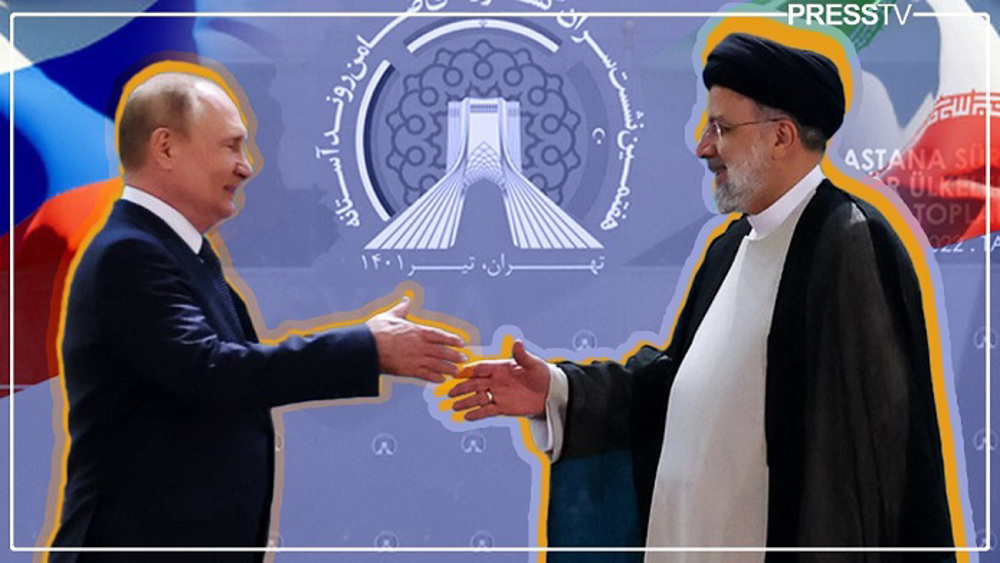
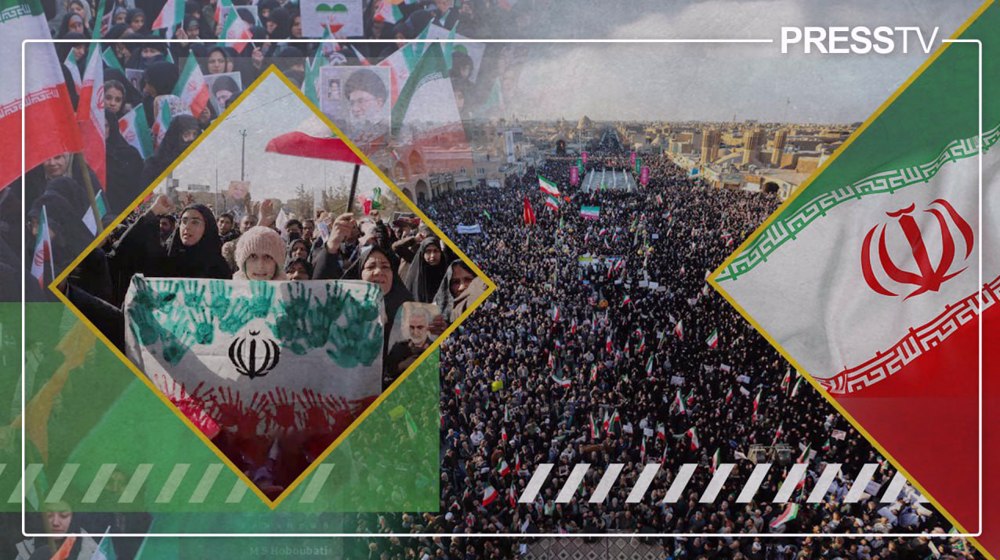
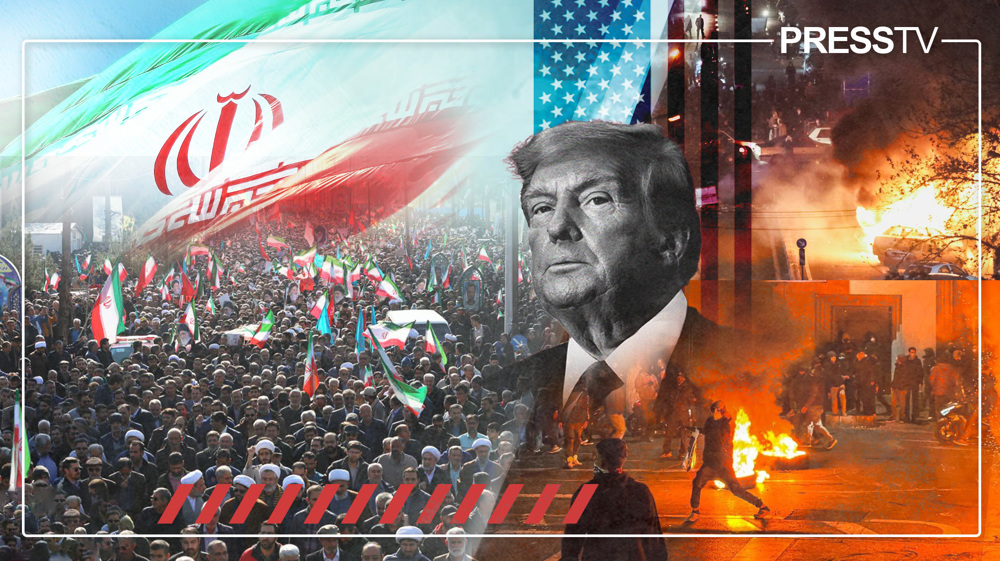
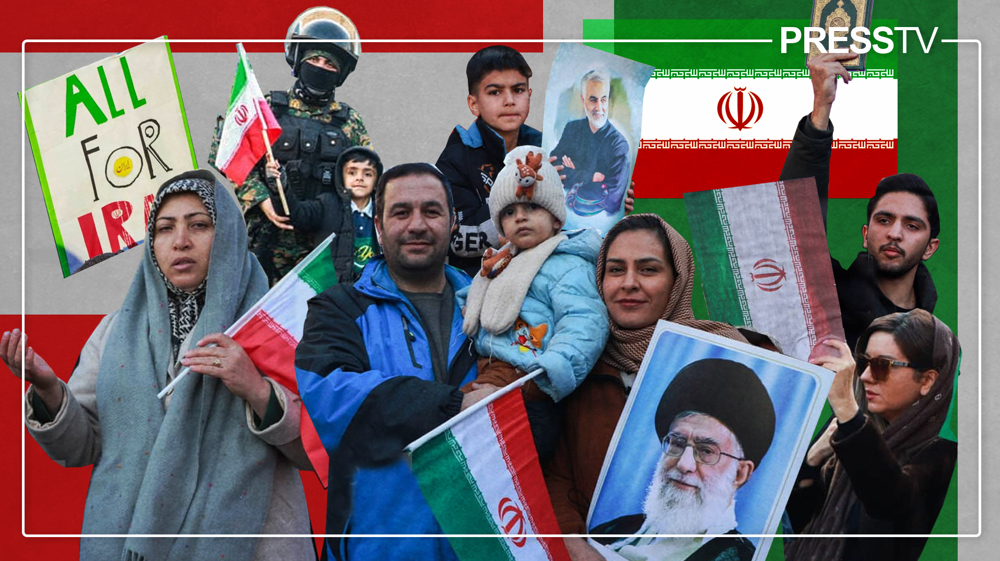



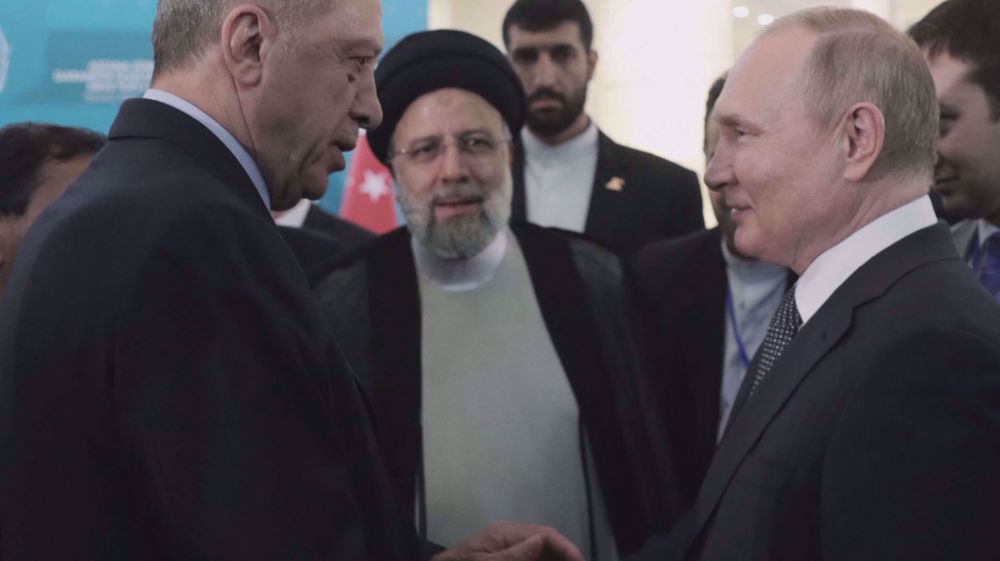
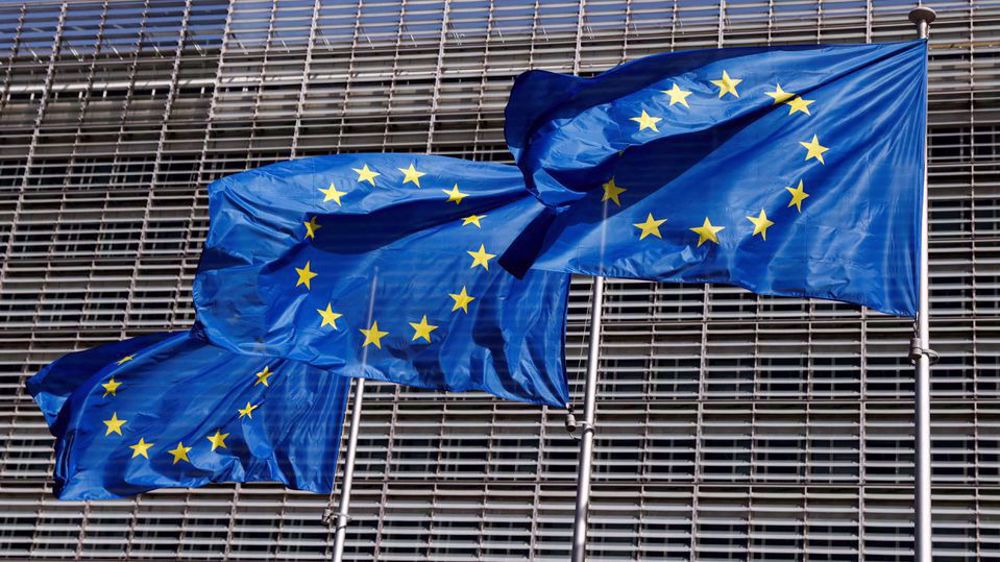
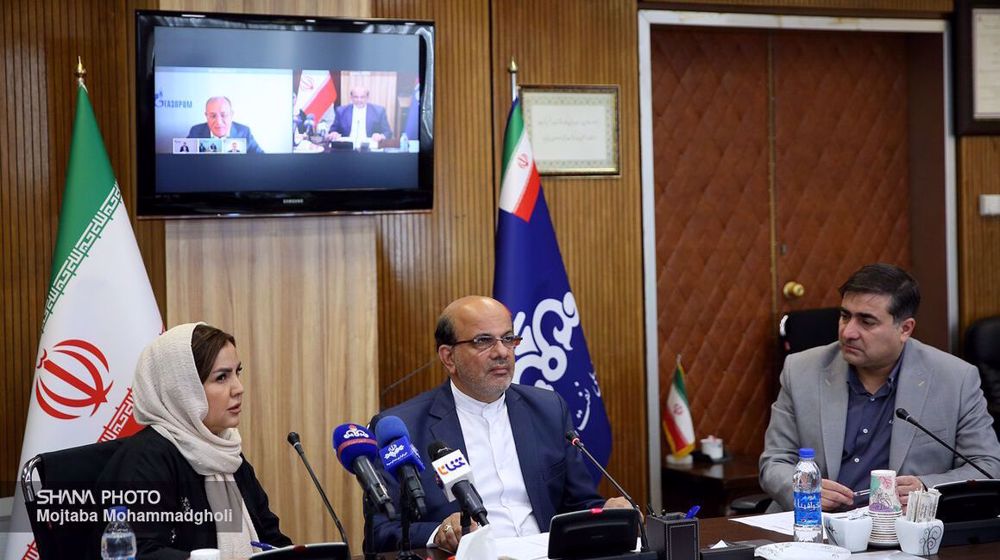

 This makes it easy to access the Press TV website
This makes it easy to access the Press TV website